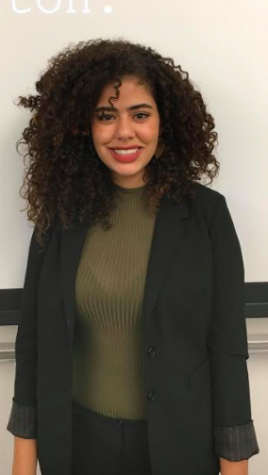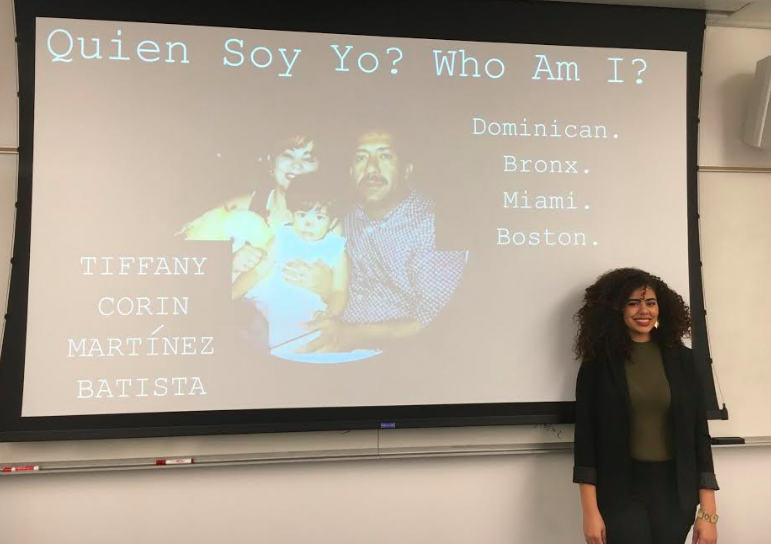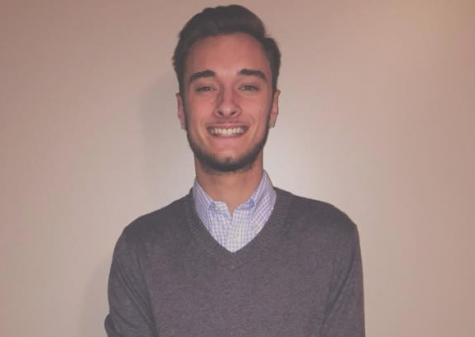Each and every person has a right to feel comfortable in their own skin and with their own culture how they choose to identify. In a nation that was once dubbed as a ‘melting pot,’ The United States of America is more than just a mixture of diverse people. Jimmy Carter, the country’s 39th President, summed this ideal up in a speech on Oct. 27, 1976 in Pittsburgh, Pennsylvania.
“We become not a melting pot but a beautiful mosaic. Different people, different beliefs, different yearnings, different hopes, different dreams,” Carter said.
This ideal of diversity, of being proud within one’s own culture, is prevalent in the Latinx community.
Tiffany Martinez, a 21 year old senior at Suffolk University, provided inclusive and comfortable perspective in regards to the Latinx community in a seminar, Hispanic/Latinx Heritage Month: A Latinx Voice in Higher Education, on Oct. 11.
“It’s all about finding the community of people that you’re with,” Martinez said during the seminar, “What happened to being perceived and judged by our character?”
So many terms and labels constantly bombard society from social media and news outlets. Ethnic backgrounds, culture, and identifications are thrown around from people onto another, and understanding that identification is something that each individual has the power to do, not others is important.
The term, ‘Latinx,’ allows associating persons the freedom to rid themselves of gender constraints. In a culture where the Spanish language is indeed very common, the ending masculine, ‘o,’ vowel, or feminine vowel, ‘a,’ can be excluded in favor of a evenly distinguished, ‘x.’ By switching the ending letter, it allows for equality in a culture dominated by masculinity.

Additionally, the term ‘Hispanic’ is not the confining term for people of color, Martinez explained to the audience. While this term appeared in United States census in 1970 and allowed citizens to differentiate from the Spanish (and other) colonizers, not all people of color are rooted from Spain. Martinez discussed how speaking the Spanish language is not inherent to being Latinx, and that this notion is something that gets misconstrued.
According to the university’s website, Hispanic/ Latinx heritage month is celebrated from Sept. 15 to Oct. 15. Students at Suffolk, and faculty in the Diversity Services department focus on the different identities that are present in each person, while encouraging that each individual identity is not classified in stereotypical ways.
Martinez commented in an interview with The Suffolk Journal on Tuesday afternoon, describing her own motivation for being a spokesperson, and using her skills on a platform that can empower and inform so many within the Latinx culture.
“I just want to make sure that people understand that my experiences are just as valid as anyone else’s and no one should ever just push me to the side,” Martinez said.
She informed the audience that her goal is not to create a safe space necessarily, but to create an inclusive space that allows people to be comfortable.
“We are creating an intentional and courageous space,” Martinez said in her presentation, “I don’t know where you come from, I don’t know what a safe space means for you.”
By creating an environment that addresses the challenges of diverse backgrounds and experiences, the goal of deepening student development is something that can be communicated more fluently.
But even though there are groups and organizations designed specifically to prompt inclusive environments and motivation to take pride in cultural individuality, this is not always the case. The Office of Diversity Services Director Dr. Lizette Rivera commented upon this issue during Martinez’s presentation, addressing the problems students have.
“You go home and your family is one way, and you go to college and you’re being taught all these different things. And there’s such a disconnect,” said Rivera. “We’re supposed to be latina/latino scholars, but all this narrative that I’m learning and preaching, that doesn’t hit reality.”
Suffolk offers the Latinx community a variety of diverse organizations, but Martinez says that the university needs to work on diversifying faculty members and staff, stating in her undergraduate education, she only has had two professors of the Latinx community, and said that a lot of these people are not staying at the school.
Rivera commented as well, adding that it goes beyond the staff, talking about validation in reasons to attend a specific university.
“Needing to see yourself reflected in the campus, in not just the faculty but the staff as well,” she said. “But, not just diversifying staff by adding more people of color, but adding more people with diverse backgrounds that can relate to students. Also it’s making sure as we’re creating diversity, as we are adding more people of color to faculty and staff, we’re creating safe and brave spaces for them that also allow them to want to stay.”
“Our voices, our experiences, need to be recognized.” Rivera said, “It’s not just about adding people of color, it’s creating that culture of inclusion.”














